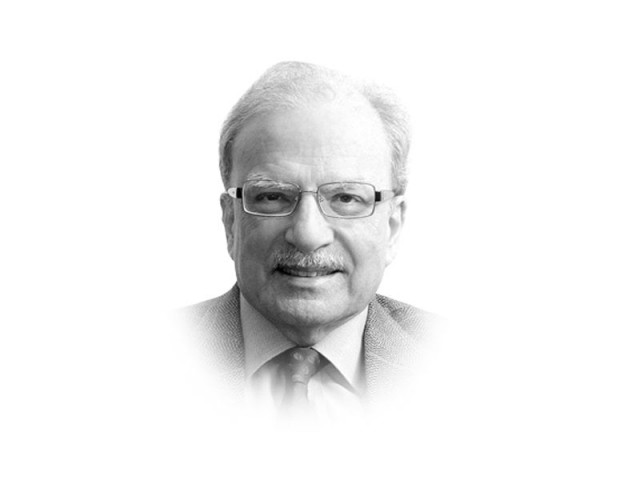On the eve of the third real election
Election will provide answers to the questions being raised about evolving political, economic orders in the country.

The writer is a former caretaker finance minister and served as vice-president at the World Bank
He told me of a recent visit he and some other economists had taken to Faisalabad — arguably the hub of Punjab’s industrial economy — and came across extraordinary enthusiasm about the future of the country and its economy. “The industrialists and traders we met at the city’s Chamber of Commerce were looking forward to the opening of the economy with India. There was nothing but good in that for them and the country”. But it was not only the entrepreneurs operating in large urban centres of the country that look upon Pakistan’s economic future with hope. “The countryside was booming with consumer durables being sold at rates never seen before”, said my economist friend. “I have traveled up and down the country in recent months and seen with my own eyes what numbers don’t tell. The recent commodity boom in the international market place has done wonders for the Pakistani producers in the countryside and also for rural consumers. There is palpable prosperity in the country’s towns and villages”.
This cheerful interpretation of the state of affairs in Pakistan was very different from the gloomy picture being painted by a number of economists, including those of the international financial institutions. The visit to Islamabad of the International Monetary Fund in mid-January made it clear to the authorities in Pakistan that they were not satisfied with the economy’s performance. A number of prior actions would be required before any support could be provided to the country. Which of these two views is right? This is an important question and the answer to it will matter as Pakistan heads for its third real election. Why only the third real when the country has held many more — in 1970, 1977, 1985, 1988, 1990, 1993, 1997, 2002 and 2008? With the exception of those in 1970 and 2008, all the others were deeply interfered with by those who held the reins of power. They were designed and managed to produce the results desired by the establishment. But 1970 and 2008 elections were different. They brought to the surface the forces that lay just below, kept there by authoritarian rulers or by the military. Both sought to impose their will on the Pakistani society.
The coming election will also be a game changer. It will provide answers to the many questions that are being raised about the evolving political and economic orders in the country. Some of the more important ones relate to what has happened to the economy under the current political dispensation. Is Pakistan doing as well as it could or should it do better? Are all segments of the society and all areas of the country benefiting from the small increase taking place in the gross domestic product? Is the quality of governance satisfactory or is extensive corruption slowing down the economy and worsening the distribution of income?
Once — or if — the political structure becomes accommodating, it will also change the economic landscape. While there may be differences in the way different people see how change is affecting many segments of the population, few would argue that the present political structure serves mostly those who occupy the top rungs of the economic system. For the last five years, Pakistan has had a representative form of government but the representatives people have sent to the various legislative assembles have served mostly vested interests. Would that change? The tens of thousands of people who followed the preacher-politician Tahirul Qadri to Islamabad did so in the hope of widening the system by including those who are prepared to work for others.
The question of making the Pakistani system more inclusive is not unique to Pakistan. For instance, US President Barack Obama’s in his second inaugural address presented a sharper vision of the role of the government: first, “that preserving our individual freedoms ultimately requires collective action”; second, that “our country cannot succeed when a shrinking few do very well and growing many may barely make it.” These words were spoken oceans away from Pakistan but they also apply to the country that wants desperately to see a better future for itself.
Published in The Express Tribune, January 28th, 2013.
















COMMENTS
Comments are moderated and generally will be posted if they are on-topic and not abusive.
For more information, please see our Comments FAQ